This inclusive growth feature is one of a multi-part feature on how to support inclusive growth in St. Louis by our advisory committee for the Inclusive Growth in St. Louis Event Series. In my hometown of St. Louis, inclusive growth means that everyone in our community has access to education and training to obtain well-paying […]
Category: SPI
Celebrating the Graduate Policy Scholars 2021 Cohort
The Graduate Policy Scholars program provides students from all fields of study with impactful opportunities and training in policy. Offered by the Clark-Fox Policy Institute in partnership with the Social Policy Institute, the yearlong program provides students with opportunities to develop skills in advocacy, analysis and/or organizing. During the program, students receive guidance and mentorship […]
Inclusive Growth Feature: Impacting policy through collaboration
Jackie Hutchinson, director of advocacy at the Consumers Council of Missouri, sat down with the Social Policy Institute to discuss her career in advocating for equity and inclusive growth. Throughout her career she’s found her greatest impact through policy action and collaboration. This inclusive growth feature is one of a multi-part feature on how to […]
Israel’s next president has long-standing relationship with the Social Policy Institute at Washington University
With Isaac Herzog set to become Israel’s 11th president later this summer, the Social Policy Institute (SPI) reflects on its long-standing partnership with the future president. SPI director, Michal Grinstein-Weiss, began working with President-elect Herzog in 2010 to generate national support to create the first universal child development account program (CDA) in the world. Grinstein-Weiss, […]
Inclusive Growth Feature: Intersection of health, wealth and inclusive growth
How can we build inclusive and healthy communities in St. Louis? Kristy Klein Davis, Chief Strategy Officer of the Missouri Foundation for Health, sat down with the Social Policy Institute to discuss the intersection of health and inclusive growth. This inclusive growth feature is one of a multi-part feature on how to support inclusive growth […]
Data for Social Impact: Roundtable Discussion Summary Report
To inform the Data Science for Social Impact initiative, SPI hosted a series of public roundtable discussions in partnership with the Mastercard Center for Inclusive Growth, data.org, and the St. Louis Regional Data Alliance in 2021. This report documents the information gathered at the first two discussions.
Investing in Inclusive Neighborhoods
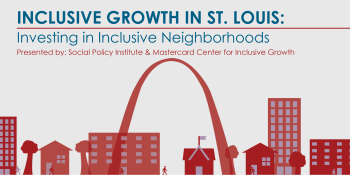
Join us virtually for Investing in Inclusive Neighborhoods, 12:30-2:00 p.m. (CT) on July 14 and 15, to explore strategies for community driven, place-based investments that support equitable housing valuations and small/minority-owned business growth that leads to long-term wealth.
Racial and Ethnic Disparities in Housing Instability during the COVID-19 Pandemic: The Role of Assets and Income Shocks

Abstract Stable and adequate housing is critical in the midst of a pandemic; without housing, individuals and families cannot shelter in place to prevent the spread of disease. Understanding and combating housing hardships in vulnerable populations is therefore essential to a sound public health response. This study aims to explore the pandemic’s disproportionate impacts on […]
Inclusive Growth Feature: Why the intersection of social work and banking is crucial to inclusive growth
by Sheri Flanigan- Vazquez, Chief Operating Officer of Justine PETERSEN and advisor of Inclusive Growth in St. Louis event series. I am educated as a Master of Social Work, but perhaps assume the role of a banker by profession. Are they mutually exclusive? Does this pose an inherent paradox? And if so, why I am […]
Building an effective employee financial wellness program [5 Key Insights]
Anyone who does a “happy dance” on payday knows how much employers affect our financial lives. Most of us depend on employment to make ends meet and pursue our long-term goals. That’s why through the Workforce Financial Stability Initiative, we’ve been studying employee financial wellness programs (EFWPs) since 2017. Our motivation was simple: with growing […]
Inclusive Growth Feature: Jorge Riopedre on Why Inclusive Growth Matters
Author: Jorge Riopedre, executive director of Delmar Divine and advisor of Inclusive Growth in St. Louis event series. St. Louis has historically been segregated, with people of color living in areas that were purposely removed from economic opportunities. In my work at Delmar Divine, I can see firsthand why inclusive growth matters. The disregard for […]
SPI Celebrates Graduate Policy Scholars!
The Social Policy Institute wants to celebrate the Graduate Policy Scholars! Below is a form that asks you to reflect on your experience within the Graduate Policy Scholars. Please share your thoughts on GPS whether or not you would like to publically include your answers in our virtual celebration of GPS graduates. For those of […]
Women can’t be stopped: Applying resiliency of pandemic struggles to acquire new, high-quality job opportunities
International Women’s Day marks one year since the COVID-19 crisis began. Over the past year, the pandemic drastically cut women from the workforce in the United States and beyond. However, despite all of this, there is a chance for a new opportunity. Women around the world have an opportunity now to apply their resiliency to acquire new skills and re-enter the workforce in industries where they have been historically under-represented.
Improving Access and Minimizing Obstacles for Medicaid Buy-In Participation
Medicaid Buy-In (MBI) has received public and policymaker attention in recent years as an option for states to expand access to healthcare. “Eligibility can be so confusing and complicated it presents an obstacle for providers and government alike to communicate clearly, never mind promote Medicaid buy-in for working people with disabilities.” Kimberly Lackey, Director of […]
Does one size fit all? Exploring provider behavior interventions and best practices alignment to improve healthcare for all
The COVID-19 pandemic has forced the United States to reassess public health as we know it. In a time where providers were forced to wear trash bags as personal protective gear and alarming ICU rates across the nation, it is clear we are witnessing a shift in the future of healthcare services. But to what […]
Food assistance (SNAP) recipients were disproportionately forced out by landlords during the pandemic
Previous analysis of the Social Policy Institute’s Socioeconomic Impacts of COVID-19 Survey found that Temporary Aid for Needy Families (TANF) recipients were evicted at higher rates than households not getting TANF, and new analysis finds similar trends for households receiving Supplemental Nutrition Assistance Program (SNAP) funds.
Cash assistance (TANF) recipients suffer the brunt of evictions despite the moratorium
New evidence from the Social Policy Institute’s multi-wave Socioeconomic Impacts of COVID-19 Survey shows that during the pandemic, TANF recipients were evicted at significantly higher rates than non-recipients, even when accounting for differences in demographics, income, assets, recent job loss, and how many months behind they are in rental payments.
COVID-19 School Meal Policies as Long-term Strategies to Fight Child Food Insecurity
In response to COVID-19 and the nationwide school closures that followed, the federal government passed the Families First Coronavirus Response Act (FFCRA) and the Coronavirus Aid, Relief, and Economic Security (CARES) Act. Through these policies, the USDA was able to grant meal waivers to help schools and community organizations provide meals and snacks during COVID-related […]
The Babies in the River: Creating Equitable Safety Nets and Springboards to Opportunity
by Nisha G. Patel, Senior Fellow, SPI Some 25 years ago, I was a bright-eyed, young, graduate student at the Brown School and I learned the parable of the babies in the river. The townspeople in a village noticed that babies were beginning to appear in a river and were in danger of getting swept away by the current. Some people immediately jumped into the river, scooping up the babies to save them from drowning. […]
Nudging Parents to Improve Children’s Oral Health: A Field Study
This research brief is part of a series by the Social Impact Nudgeathon initiative. This initiative incorporated insights from behavioral economics into the design and delivery of social welfare programs. Developed through a partnership between the Joint Distribution Committee in Israel (JDC-Israel) and the Social Policy Institute (SPI) at Washington University in St. Louis, this initiative is among the first of its kind to launch in Israel. […]
Increasing Successful Completion of Practical Engineering Diploma Programs
This research brief is part of a series by the Social Impact Nudgeathon initiative. This initiative incorporated insights from behavioral economics into the design and delivery of social welfare programs. Developed through a partnership between the Joint Distribution Committee in Israel (JDC-Israel) and the Social Policy Institute (SPI) at Washington University in St. Louis, this initiative is among the first of its kind to launch in Israel. […]
Fee payments to access COVID-19 relief funds threaten household financial security and economic recovery
The U.S. Senate signaled that it has the votes to pass a new $1.9 trillion stimulus through the budget reconciliation process on February 2, 2020. This means that a new round of COVID-19 relief payments is likely. These relief payments, which propose distributing $1,400 to qualifying adults, will be the third such payment offered since […]
Creating Inclusive Access to Education, Training & Technology
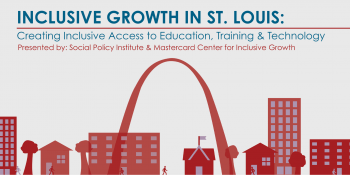
Watch recording from Feb. 10-11 event, Creating Inclusive Access to Education, Training & Technology, a discussion about the opportunities to create inclusive access to education, training & technology for under-represented populations in St. Louis.
Call for Proposals: Identifying and addressing the challenges of COVID-19 through artificial intelligence, technology, and big data
The Social Policy Institute (SPI) and the McDonnell International Scholars Academy at Washington University in St. Louis are seeking proposals from Washington University researchers and international partners that identify and address the challenges of COVID-19 through artificial intelligence, technology, and big data. Proposals are due by Feb. 26, 2021. This is the second year the […]
Study: Women with young kids vanishing from the workforce in Israel (Links to an external site)
Director, Michal Grinstein-Weiss, was interviewed by i24News.
A Message from the Director
As we are opening a near year, we are also experiencing the tragedy of the violence at the U.S. Capitol on Jan. 6, 2021. It was a sad day in our nation’s history and highlights the ever-widening divisions within the country. Despite the shocking and unprecedented moment in American history, Congressional leaders were undeterred and […]
In Israel, households with children are struggling during the COVID-19 pandemic
Like many families across the globe, Israeli families have been facing the challenges of raising children during the COVID-19 pandemic. Not only do Israeli families have to adjust to large changes in their child(ren)’s schooling, but they are also forced to cope with the financial shocks, such as job and/or income loss that come with […]
7 Tips to Mitigate Hoarding Behavior
Mary Acri has seven tips to manage feelings of powerlessness, helplessness and fear without stockpiling toilet paper as the pandemic persists.
Income Loss and Financial Distress during COVID-19: The Protective Role of Liquid Assets
This study examines how demographic, financial, and intrinsic personality characteristics predict household participation in Israel’s Child Development Account (CDA) program, the Savings for Every Child Program (SECP).
The Far-Reaching Impacts of COVID-19 on the Financial Lives of Israelis – Differences by Religion and Ethnicity
Press Release: October 25, 2020 With a COVID-19 death toll exceeding 2,000, Israel now has one of the highest per capita deaths in the world. Feelings of frustration and despair have resulted in the largest anti-government demonstrations since the establishment of the country, emphasizing that a central crisis during the COVID-19 is a growing divide […]
Three reasons young Israeli adults may face catastrophic, long-term financial burden from COVID-19

Press Release: September 25, 2020 The potentially catastrophic, long-term financial impacts of COVID-19 on young adults are highlighted in the Socioeconomic Impacts of COVID-19 Survey[1] in Israel, which was administered between June 4 and July 1 by the Social Policy Institute at Washington University in St. Louis in partnership with Mastercard. The survey results found […]
A different dialogue: Lifting up community voices

By: Sarah Cowart, communications manager for Social Policy Institute; Pamela Chan, associate director for Social Policy Institute, and Daniel Barker, director of research and knowledge, Mastercard Center for Inclusive Growth If you attended “Building an Inclusive Economy” on October 7 with the Social Policy Institute at Washington University in St. Louis (SPI) and Mastercard Center […]
Supporting Inclusive Households in Building Financial Security
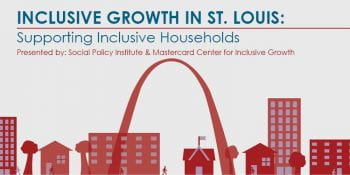
Join us virtually for Supporting Inclusive Households in Building Financial Security, 12:30-2:00 p.m. (CT) on Dec. 10, 2020, for a discussion about the opportunities to equitably support the financial situations of households.
It shouldn’t take a pandemic to increase school meal access for low-income students: A two-step floating catchment area analysis of school meal access during COVID-19
COVID-19 created an additional barrier for students who benefit from free school meals. While some schools attempted to provide alternative meal access points, many students lack adequate transportation. This study examines meal access in St. Louis, MO.
SPI introduces new program with Brown School for students interested in data and statistics
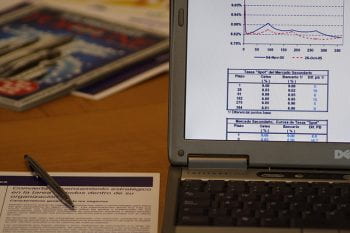
Data and statistics are foundational to policy research and practice. As Social Policy Institute continues to grow, developing opportunities for people to increase knowledge and skills in these areas is a focus of our organization. One example of how we are doing this is a new opportunity led by the Brown School at Washington University in St. Louis and Social Policy Institute: Data and Statistics for Policy Practice.
Working Parents in COVID-19: The Impact and the Policy Response
Michal Grinstein-Weiss, director of the Social Policy Institute at Washington University in St. Louis (SPI), and Nisha Patel, senior fellow at SPI, spoke on a panel hosted by the American Academy of Political and Social Sciences on Oct. 29, 2020 about the impact of COVID-19 on working families, including original research from the Socioeconomic Impacts […]
Financially stressed families save more with Medicaid, study shows (Links to an external site)
The University of Colorado Boulder announces SPI’s recent study showing that families with access to Medicaid are able to increase their savings.
Can pre-commitment increase savings deposits? Evidence from a tax-time field experiment
This experiment tested combinations of behavioral strategies to promote savings including (1) asking filers at the start of tax preparation to pre-commit to saving their refund, and (2) choice architecture manipulations that emphasized directly depositing their refund into savings accounts or savings bond purchases.
Household savings decisions in Israel’s child savings program: The role of demographic, financial, and intrinsic factors
This study examines how demographic, financial, and intrinsic personality characteristics predict household participation in Israel’s Child Development Account (CDA) program, the Savings for Every Child Program (SECP).
SPI researchers featured at 2020 APPAM Conference
Seven Social Policy Institute researchers will present their papers and/or host discussions at the Association for Public Policy Analysis and Management conference on November 11-13.
An epidemic of food insecurity in Israel (Links to an external site)
Davar Today, a newspaper in Israel, interviewed Michal Grinstein-Weiss about the impact of COVID-19 on food insecurity in Israel. The data presented is based on the Socioeconomic Impacts of COVID-19 Survey in Israel.
Emergency savings are a potential lifeline for households in financial distress due to COVID-19
Many U.S. households have lost a job and/or income due to the COVID-19 pandemic. These types of losses can influence an individual’s level of life satisfaction and thus, their overall health and well-being. One possible strategy to mitigate the impacts of economic volatility for U.S. individuals and households is to build a rainy-day fund. A […]
Hardship is greatest among vulnerable Israelis already struggling financially
By: Olga Kondratjeva, data analyst III, Social Policy Institute; Michal Grinstein-Weiss, director, Social Policy Institute; Talia Schwartz-Tayri, researcher, Ben-Gurion University of the Negev; John Gal, professor, The Paul Baerwald School of Social Work and Social Welfare, The Hebrew University of Jerusalem; senior researcher, the Taub Center for Social Policy Studies in Israel; & Stephen Roll, […]
Research found 16% of job loss or layoffs reported payment difficulties
The story below is a translation from an article printed in Hebrew in Israel Today, the largest newspaper in Israel, on Oct. 5, 2020. A new study published here for the first time examined the effect of the first lockdown on households using 2,300 Israelis from June 4 to early July. The data show that […]
Safe, affordable child care is a right, not a privilege
As the United States nears the seventh month of weathering COVID-19’s impact, it has become clear that the economy will not recover simply by encouraging businesses to re-open or consumers to keep shopping. Working adults with children are being disproportionately affected by COVID-19 and will continue to struggle without stronger federal and state support for child care.
Lee twice recognized as leader in field (Links to an external site)
Hedwig Lee, professor of sociology in Arts & Sciences at Washington University in St. Louis and faculty affiliate for Social Policy Institute, was elected to the prestigious Sociological Research Association. The highly selective honor society elects up to 14 new members each year; the sole criterion for selection is excellence in research.
Building an Inclusive Economy: Oct. 7
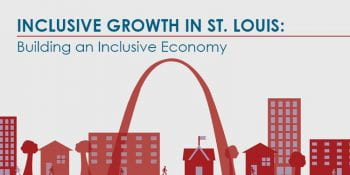
This event has passed. Watch a recording or see below. Historically, as the St Louis economy grows, benefits are not equally, nor equitably, distributed. As we look to rebuilding our economy from COVID-19 devastation, now is the time to consider how St. Louis can change to become a model for a truly inclusive economy that […]
Apply Now for the 2020-2021 Graduate Policy Scholar Program
If you are interested in policy, community organizing, advocacy and more, the Graduate Policy Scholar Program is a great match for you! The Graduate Policy Scholar Program is committed to building a community of policy-interested graduate students at Washington University. Over this coming academic year, Scholars-in-Training will supplement their coursework with skill-building and networking experiences designed […]
Financial Well-Being in Turbulent Times: Sept. 9 (Links to an external site)
This is a virtual event with The Conference Board, featuring SPI senior scientist, Ellen Frank-Miller.
Students Share their Experiences with the Graduate Policy Scholars Program
The Graduate Policy Scholars program provides students from all fields of study with impactful opportunities and training outside of their curriculum. Offered by the Clark-Fox Policy Institute in partnership with the Social Policy Institute, the yearlong program inspires students to pursue their unique interests. Nearly 120 students have completed the GPS program through its first […]